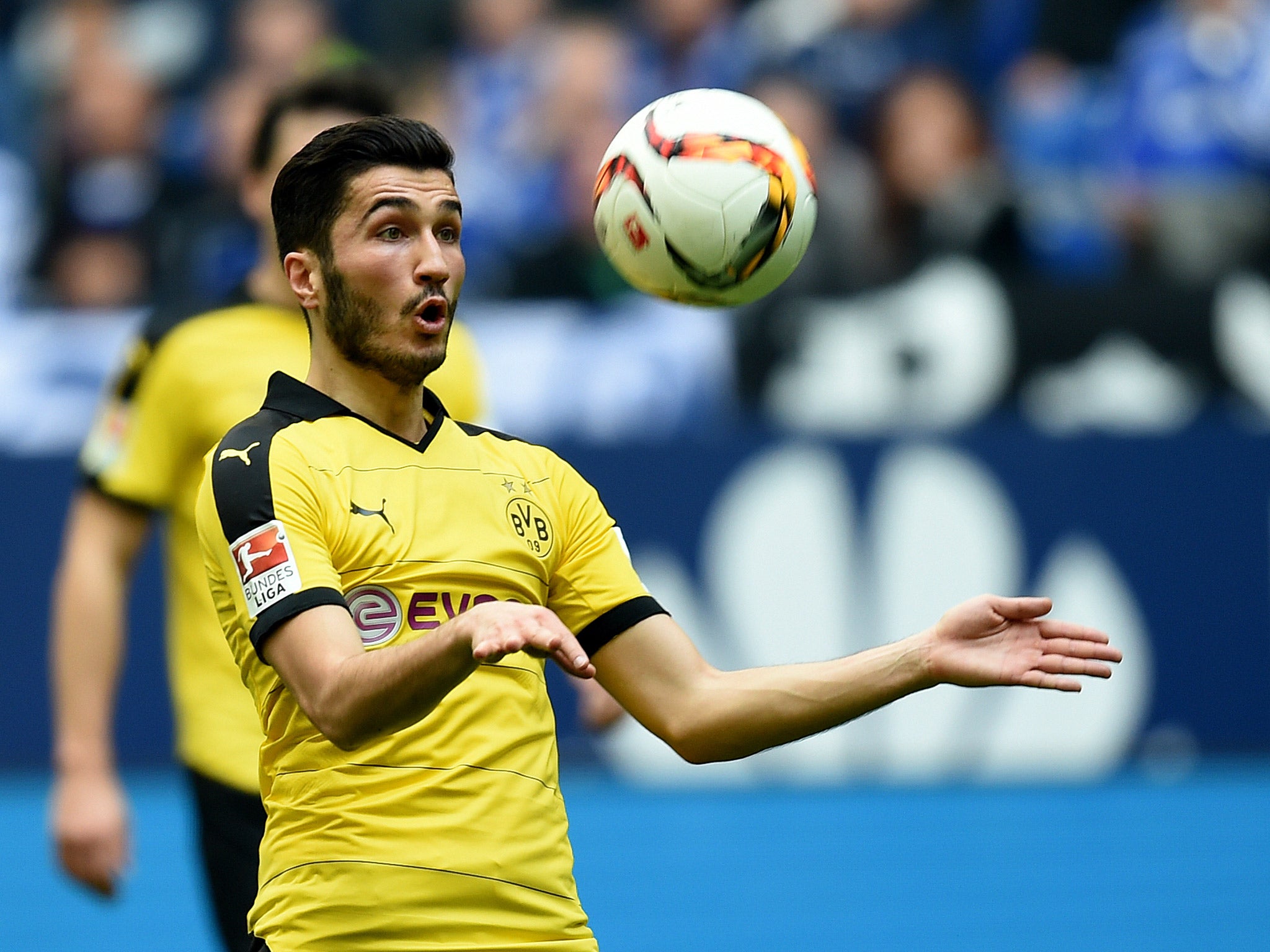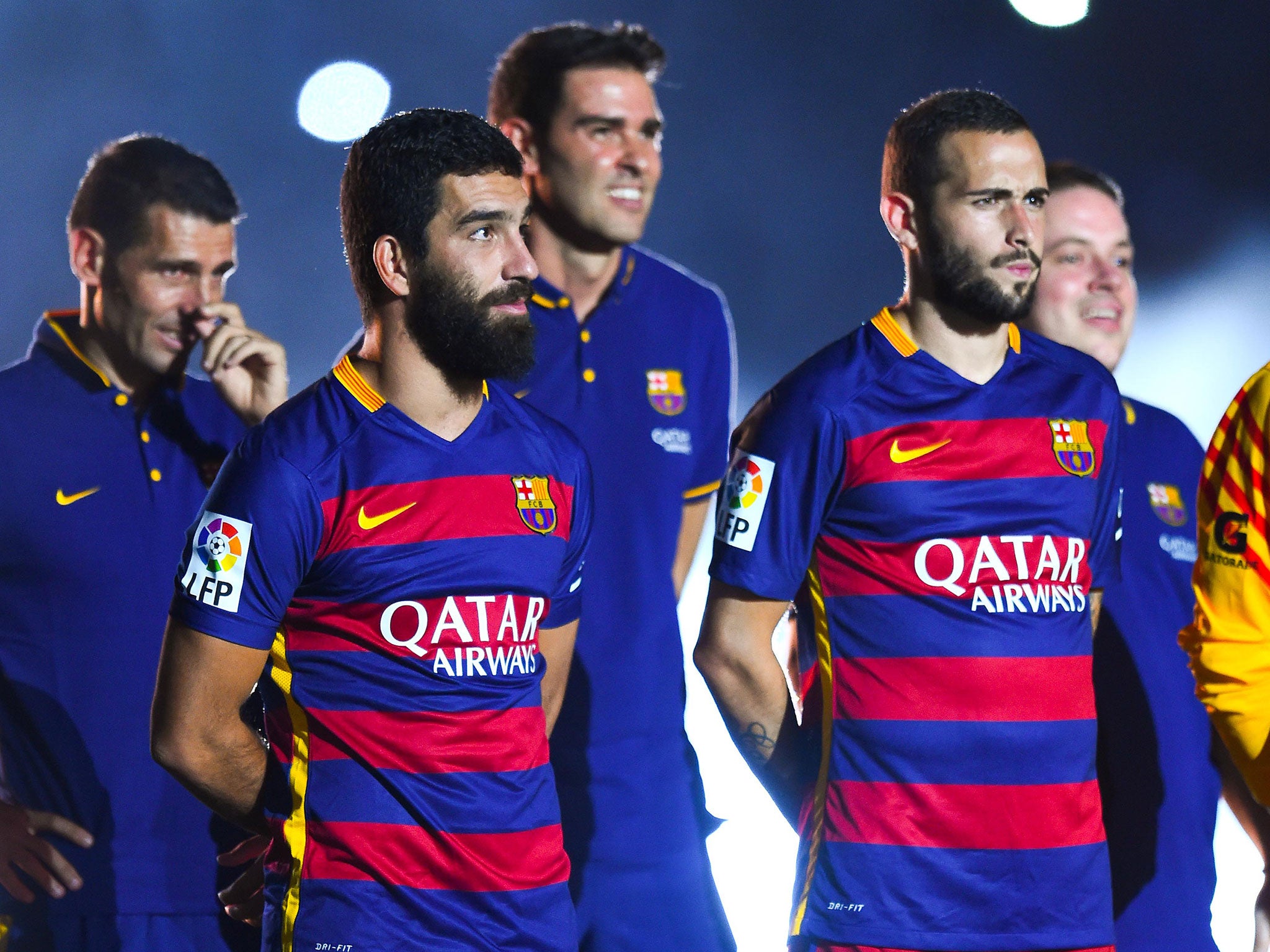Euro 2016: How players born in Germany could help Turkey to spring a surprise
Fatih Terim's side were struggling in qualification but they have had a resurgence thanks to a new generation of players born and brought up in the academies of western Europe

Your support helps us to tell the story
From reproductive rights to climate change to Big Tech, The Independent is on the ground when the story is developing. Whether it's investigating the financials of Elon Musk's pro-Trump PAC or producing our latest documentary, 'The A Word', which shines a light on the American women fighting for reproductive rights, we know how important it is to parse out the facts from the messaging.
At such a critical moment in US history, we need reporters on the ground. Your donation allows us to keep sending journalists to speak to both sides of the story.
The Independent is trusted by Americans across the entire political spectrum. And unlike many other quality news outlets, we choose not to lock Americans out of our reporting and analysis with paywalls. We believe quality journalism should be available to everyone, paid for by those who can afford it.
Your support makes all the difference.Turkey is a country of almost 80,000,000 people, who make up one of the most enthusiastic football publics in Europe. The big three Istanbul teams all play in impressive modern stadiums, and pay generous wages to top players. Galatasaray have Wesley Sneijder and Lukas Podolski, Fenerbahce have Nani and Robin van Persie, Besiktas, this year’s champions, have Ricardo Quaresma and Mario Gomez.
But Turkish football has a problem. It does not produce enough good players. It never has, which is why Euro 2016 will only be the sixth major tournament the national team has played in, and the first since Euro 2008.
After three games of the qualification campaign for Euro 2016, this was looking like a similar story. Turkey had taken just one point from games against Iceland, Czech Republic and Latvia. They were bottom of Group A, behind Kazakhstan and Latvia.
But then something clicked, and Turkey went on a run that has taken them all the way to the Euros. Fatih Terim’s side took 17 points from their last seven games, finishing with a run of wins against the Netherlands, Czech Republic and Iceland. The ended up in third, five points ahead of Dutch, and qualified automatically for the Euro.
In March Turkey won difficult friendlies against Sweden and Austria, extending their unbeaten run to 12 games. They arrive at the Etihad Stadium on Sunday with a legitimate claim to be the form team in Europe.
The difference, the reason that Turkey turned Group A on its head, and why no-one will want to play them in France, is in the rise of a new generation of Turkish players, who have solved the issue of Turkish development. Because the new stars of this team were all born and educated in western Europe.
The story of how Turkish migration to Germany has equipped the German national team with players like Mesut Ozil and Emre Can – both in Joachim Loew’s squad for Euro 2016 – is well known by now. The Turkish community in Germany numbers almost 3 million people and quite a few young men, born around 1990, especially in the industrial west, have become professional footballers.
But for every Ozil, Can or Ilkay Gundogan, players who decided to represent the country of their birth, there is another who chose to play for Turkey instead. Germany does not allow adults to hold both German and Turkish citizenship, and almost as many have moved to Turkey as have stayed. These are the players, brought up in the modern academy environments of Germany and its neighbours, who have added a new technical edge to Fatih Terim’s side.
“Generally these players have received better coaching and have been taught modern football,” explains Emre Sarigul of turkish-football.com. “Germany produces some of the finest players in the world, and they have benefited from the system. Turkey is trying to catch up, but it takes time.”
Turkey did not have time to wait this campaign, but after an awful start the team was invigorated by the performances of these players, players who will be seen at Wembley on Sunday and who will take on Europe next month.
The best of them is 22-year-old Hakan Calhanoglu, an elusive creative midfielder and set-piece specialist who took control of Terim’s side during qualification, scoring the goal that sealed their crucial win in Prague last October. Typically of this generation, he was born in Mannheim and grew up at Karlsruher academy before moving to Bayer Leverkusen in 2014. He may not be there for much longer.
Then there is Nuri Sahin, slightly older at 27, born in Ludenscheid, just south of Dortmund. He was the anchor of Jurgen Klopp’s first great Borussia Dortmund team, and is back there now under Thomas Tuchel.
Another option in a talented midfield is 24-year-old Yunus Malli, who is not from the west but from Kassel in central Germany. He was educated at Borussia Monchengladbach and has spent his senior career at Mainz, playing for Germany up to under-21 level before switching to Turkey, and impressing since his debut in November.

Adding much-needed quality and game-intelligence recently is Oguzhan Ozyakup, born not in Germany but in Holland in 1992. He joined Arsenal just before his 16th birthday, and made two Capital One Cup appearances in 2011, as well as captaining Holland at under-17 and under-19 level. But in 2012 he changed his allegiance to Turkey, and left Arsenal for Besiktas. He masterminded the 3-0 defeat of his native Holland in Konya last September, scoring the first goal. Now he will be at Euro 2016 and the Dutch will not.
Out on the wings there are two more German-born players with similar stories. Gokhan Tore was born in Cologne in 1992, he started at Bayer Leverkusen before briefly joining Chelsea’s youth system before returning to Germany. He is now at Besiktas, as is Olcay Sahan, born in Dusseldorf and formerly of Duisberg and Kaiserslautern before moving to Turkey. Cenk Tosun, born in Wetzlar, is another option up front.
The wildcard of the squad is Emre Mor, the 18-year-old not from Germany but from Copenhagen in Denmark. He has impressed this year for Nordsjaelland, although like Marcus Rashford, he may only be part of the initial pre-tournament group for experience.
Of course the Turkish national team is not just this generation and there is still a core of senior players who were born in Turkey. Arda Turan is the experienced captain, although he barely plays for Barcelona. Burak Yilmaz has just moved to China, which may be the end of him at the top level. Mehmet Topal anchors the team whether in midfield or defence.

But there is no escaping the fact that Turkey does not produce as many good players as it should, and that the best young talent in Terim’s squad was educated in western Europe. Terim has complained at length about the lack of development in Turkey, condemning the youth teams who do not have e-mail addresses, telephones or changing rooms of their own.
“If Lionel Messi had grown up in Turkey, we would first have called him weak,” Terim joked last year. “We would call him a dwarf. Then we would make fun of him, then we would praise him to the skies. He would not be able to carry such a load, he would get demoralised and vanish.”
If Lionel Messi had grown up in Turkey, we would first have called him weak
It is the lack of facilities and investment, more than anything else, that has held back Turkish youth development. This is why these foreign-born Turks have been able to add so much. These are players who have brought their academy-honed skills and nous back to Turkey, for the good of the side.
No-one appreciates the importance of these players, and the edge they have over Turkish natives, more than Besiktas. Their Super Lig title win this year was built on a core of foreign-born Turks who will be part of Terim’s squad at Euro 2016, including Ozyakup, Gokhan, Olcay and Tosun. Besiktas president Fikret Orman explained to The Independent in 2014 that that until Turkey invested in its academies, it would have to rely on players who were educated abroad.
“The most important thing is the players, and teaching them,” Orman said. “Turkey is 75 million people, but most of our Turkish players come from Europe. They have Turkish families, but 75 per cent of Turkish players in our team come from Germany, Holland or Belgium. It is the same genetics, but from 75 million people we cannot build our players, but Europe can.”
Join our commenting forum
Join thought-provoking conversations, follow other Independent readers and see their replies
Comments